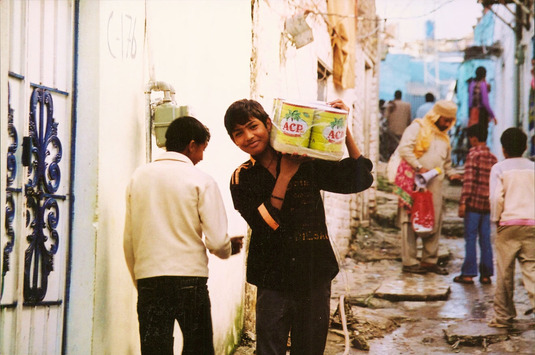Welfare as „Contact Zone“ of Christians and the State: Experiences and Negotiations of „the State“ and Citizenship in Pakistan
The spontaneous imagination of Pakistan isn´t usually that of a „welfare state“. That seems right on the one hand, as poverty and social insecurity are widely spread and the governmental programs neither function in a reliable way nor do they reach out to all those in need – especially not the religious minorities. But it seems wrong on the other side as from the founding of the state till today, Pakistan is imagined as a welfare state. How the imagined Pakistani welfare state is supposed to look like and who is responsible to fulfil the utopia is an ongoing dispute. While some draw to „western“, “secular” concepts, others refer to the “Islamic” traditions and institutions of social welfare and again others argue along human rights. And while some see “the state” to be responsible, others find welfare to be a shared responsibility of civil society and the government and again others draw to the international community and/or rich western states.
In the last years we witness an increasing political effort to make Pakistan a welfare state: there is a large number of new governmental social welfare programs with historical budgets and outreach. The political field is messy: there is a high number of stakeholders and programs with fast changing target groups and aims. National social politics are increasingly shaped by trans- and international agendas and politics and we see social interests blurring: Social welfare programs are not only a means in the “fight” against global poverty but also against terrorism, a tool to empower women and secure rights of children or people with disabilities, and not least a strategy to secure national economic growth.

Anthropology of welfare/ the welfare state has long been limited to Europe and North America with a strong focus on neoliberal reforms on the one side and questions of gender on the other. There is an urgent need to widen the geographical focus and look deeper into other and new form of social welfare – traditions, institutions and practices that have long existed or are currently emerging outside the area of focus i.e. un/conditional cash transfers and institutions of Islamic welfare. This project contributes to fill that gap.
What is happening in the field of “state welfare” in Pakistan? How is “the (welfare) state” conceptualized and how its subjects made? To find out we look at „the state“ and „citizenship“ as imaginations and a bunch of practices as well as everyday experiences. State welfare is hereby conceptualized as „contact zone“ (Linke 2006) – an arena where „the state“ and „citizens“ both meet and are (re)constituted through practices and negotiations. With Linke we thereby put a special attention to the somato-sensoric shape of the political field: how “the state” and citizenship are experienced sensually and how this experience is shaped.
The empirical research has a special focus on urban Christian citizens: on their subjective experiences and cultural appropriations of the (welfare) state on the one hand and their negotiations of citizenship and identity in contact with the (new) welfare state on the other. The majority of the religious minority lives under precarious socio-economic conditions but until recently has had limited access to social welfare that is provided by the state and civil society, as Non-Muslims are excluded from many “Islamic” welfare institutions (i.e. the established zakat fund of the state or public feedings at mosques and Islamic shrines) and they lack social and economic capital to move in the bureaucratic jungle. Recently inaugurated governmental programs like the Benazir Bhutto Income Support Program, though, are explicitly inclusive and have adopted various means to disable practices of discrimination and as a result many more urban Christians are receiving welfare from the state.
Central empirical questions are: How do Christians experience “the state” and “citizenship” in the context of (new) governmental practices of social welfare? How do they imagine “the state” and their “citizenship” under the currently (changing) conditions? How do they culturally appropriate “the state” and its transfers? How do they (re)negotiate their relationship with “the state”? How do processes of subjectivation look like in the “contact zone” of social welfare? How and which emotions do occur in the highly dynamic field of state welfare?
Team: Prof. Dr. Martin Sökefeld (project leader), Maria Beimborn, MA (researcher)
Financed by: Deutsche Forschungsgemeinschaft (DFG) (SO 435/9-1), 2014 – 2017
Publication:
- Maria Beimborn (2014) Christians in Gilgit: Negotiating subalternity and citizenship. Ethnoscripts 16, Nr. 1.
(pdf to download) - For a short project sketch see DFG Annual Report 2014.

